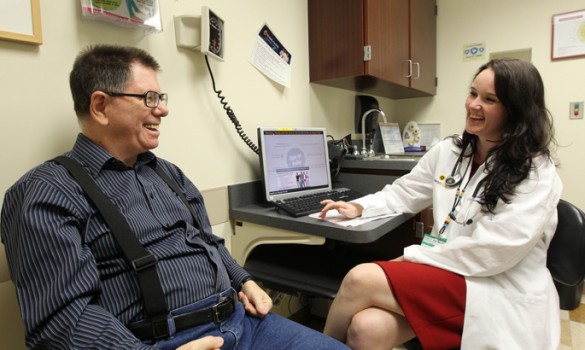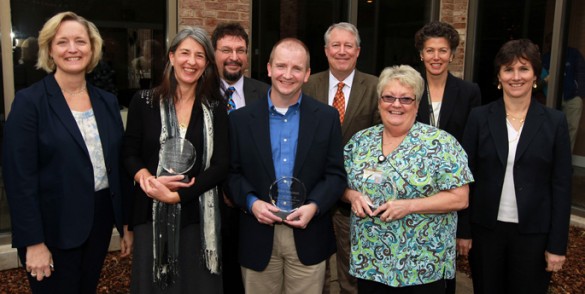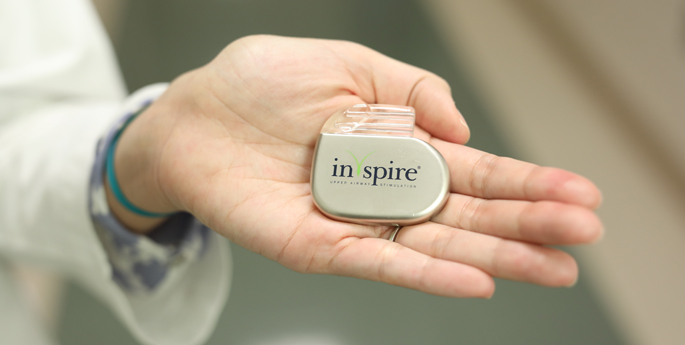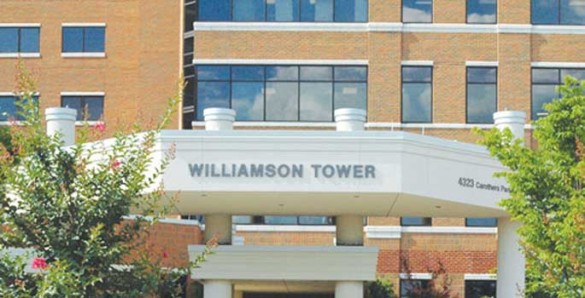
Thomas Kent has never met a stranger. He is quick to share tales about his time as a music manager in Las Vegas or to pull out one of his favorite one-liners. He says he’s the only Quaker minister in town with a wife behind the pulpit to strike a “bada-bing” after each joke.
What can be difficult about Kent is getting him to talk about his health.
“I’ve seen a lot and I’ve been lucky. For example, I had my first heart attack while I was already here at Vanderbilt. It’s a good place to be if something happens,” Kent said.
The 66-year-old recently visited Vanderbilt’s Geriatric Cardiology Clinic, which opened in August 2012. Susan Bell, M.D., Vanderbilt’s only dual-trained geriatric cardiologist says it offers a more holistic approach for older adults with heart disease, and provides top-level, evidence-based care for this growing population.
“The idea was not to stop at the heart, which we cardiologists are guilty of, and to not base our care on what we know are the recommendations based on studies that primarily included middle-aged adults. It is aligning the goals of the cardiologist with the patient’s goals — trying not to be unnecessarily aggressive, but trying to make sure they get the things that have been proven to be beneficial in this population,” Bell said.
Kent had been feeling tired and short of breath ever since his heart attack last winter. But heart trouble is just the latest item on a rather long list of health concerns. Bell says the complexities of his case make him an ideal patient for the Geriatric Cardiology clinic.
“Older adults often have many other medical problems and see numerous physicians who often do not talk to each other, so coordinating care is difficult and medication lists, especially, can get quite long. The medical conditions or medication interactions can impact quality of life and symptoms. It can be difficult to tease out the cause or causes,” Bell said.
And it can also be difficult to get older patients to change their behaviors.
During his clinic visit, Kent used humor in an attempt to deflect Bell’s suggestion that he begin to attend physical therapy.
Bell reminded him that a grip test indicted his muscle strength was below normal and puts him at risk for becoming frail. His daily walks help improve his heart and lungs, but working to improve muscle strength gives additional benefits to keep him healthy.
“My weight lifting is a cup with a hot fudge sundae in it,” Kent said.
“Just give it a go,” Bell insisted, suggesting if physical therapy goes well for a few weeks, Kent may see an improvement in his symptoms and strength.
Bell says in order to work through the complexities and to develop partnerships with her patients, the Geriatric Cardiology clinic provides longer time slots to talk with patients. Along with medical assistant JoAnn Kounlavong, Bell works to address geriatric syndromes including nutrition changes, functional status, frailty, falls, as well as advanced care planning and reviewing medications to reduce their number whenever possible.
“The American College of Cardiology has recently come out with a white paper to help cardiovascular specialists become aware of the complexities of geriatric heart patients. This is a growing need, and I enjoy the puzzle of it,” Bell said.
The Geriatric Cardiology Clinic takes place on Fridays at the Vanderbilt Heart and Vascular Institute.















